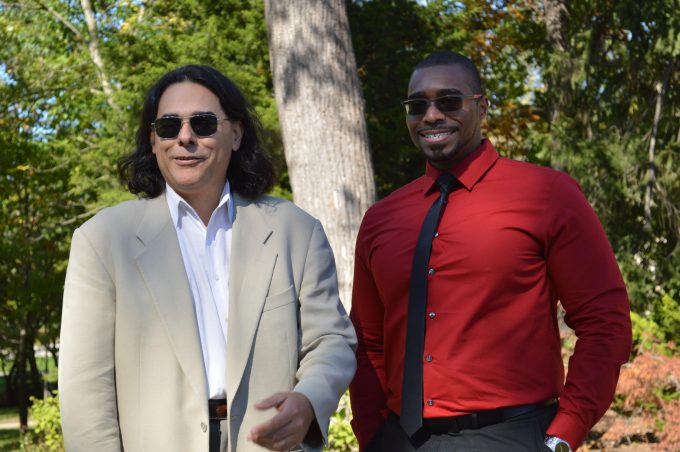Summer 2021 Letter From the Editors

The great sociologist Erving Goffman taught us that the social world is a play and we are merely actors in it. When the play is about gender and sexuality, though, the script gets complicated. The old lines aren’t enough; we continue to push for new roles and new scenery. That is what the Summer 2021 issue of Contexts is all about. In this issue, we have a thoughtful collection of articles that use gender and sexuality to explore inequality, conflict, and creativity. As we engage in a larger social conversation about how men and women interact and what it means to be male and female, sociologists will explore this new terrain.
In this issue, Simone Ispa-Landa and Barbara J. Risman provide a fascinating account of the current movement to either reform or destroy the Greek system, giving campus administrators and leaders the opportunity to change formal rules and regulations, decrease racial bias in recruitment, and end the regulatory power asymmetries that have always existed between fraternities and sororities. Next, Tony Silva’s article on straight men and gay sex directly explores the shifting instabilities of heteronormative identities. The desire for sexual contact outside marriage, without commitment, is a powerful theme in his research. Then we have Kristine C. Newvine’s account of “princessing,” the social practice where people enact, or cosplay, hyper-feminine princess characters from Disney films. Japonica Brown-Saracino, D’Lane Compton, and Jeffrey Nathaniel Parker’s exploration of attitudes toward LGBT people over the years tell us how much can change in a short amount of time.
The Summer 2021 issue of Contexts also brings a healthy portion of research focused on social inequality. Adrianna Bag-nall-Munson writes a very insightful article on people with disabilities. It discusses the issues that arise when people with disabilities take on what are normally thought of as adult roles and their challenges. Amanda Cheong discusses an important but overlooked issue related to immigration: the need to obtain a valid driver’s license. A license facilitates transportation and serves as the de facto identification needed for a wide range of services. Jerry A. Jacobs asks us to revive a classic idea, the sociological imagination, so that we may update it for the present. Genevieve Siegel-Hawley, Andrene J. Castro, Kimberly Bridges, and Kendra Taylor have written a policy brief taking on a problem that has long affected school administrations: school rezoning. School rezoning decisions do not often consider the historical practices that encourage a de facto segregation of schools. They recommend that school zoning decisions be more open and transparent and avoid previous policies that inadvertently reproduce previous injustices. Finally, in a quirky but utterly serious, back-page column, management professor Rasmus Koss Hartmann gently reminds readers that while entrepreneurship is valuable, it’s certainly not a feasible career choice for most of us.
In reviewing these articles and others that appear in this issue, I am reminded of the dynamism of the sociological discipline. For the past four years, we’ve confronted an uprising of nationalism, a crisis over police misconduct, and a brutal and prolonged pandemic. Sociologists have been at the forefront of analyzing and discussing these trends, yet they remain true to the mission of understanding our social world. We have not wavered in our commitment to the study of inequality and in our desire to bring rigorous social scientific analysis to the wider public. Contexts has worked to represent the widest range of sociological work. Whether it’s Michael G. Flaherty and Cosima Rughinis’ more topical work on the social impact of COVID, or work that investigates diversity in the U.S., such as Brenda Gambol’s article on the educational attainment of Filipino Americans, or Ashley C. Rondini’s exploration of the racial dynamics of medical education—Contexts has covered it all.
As these words go to press, the United States is at an unusual point. Vaccinations for COVID-19 are now common, and most areas of the country are re-opening. While partisan interests remain, the white-hot outrage associated with the Trump administration is ebbing, and the economy is experiencing a vibrant post-pandemic recovery. In addition, we are beginning to have discussions around police reform. Some jurisdictions are even beginning to question the status and have moved toward ending qualified immunity. Taken together, it appears that we may be at an inflection point, a moment where American society turns in a new direction. Whatever direction that may be, Contexts will be there asking the right questions and bringing the right answers.
